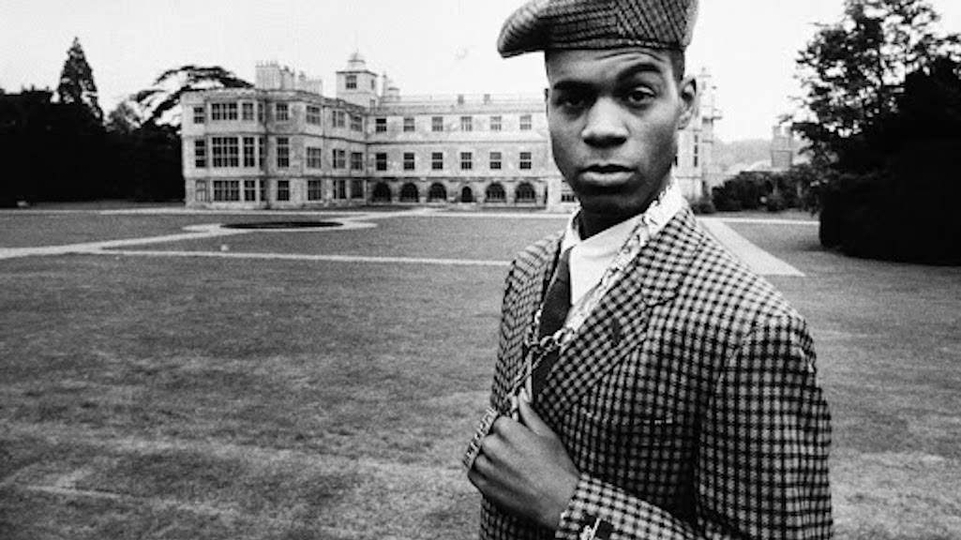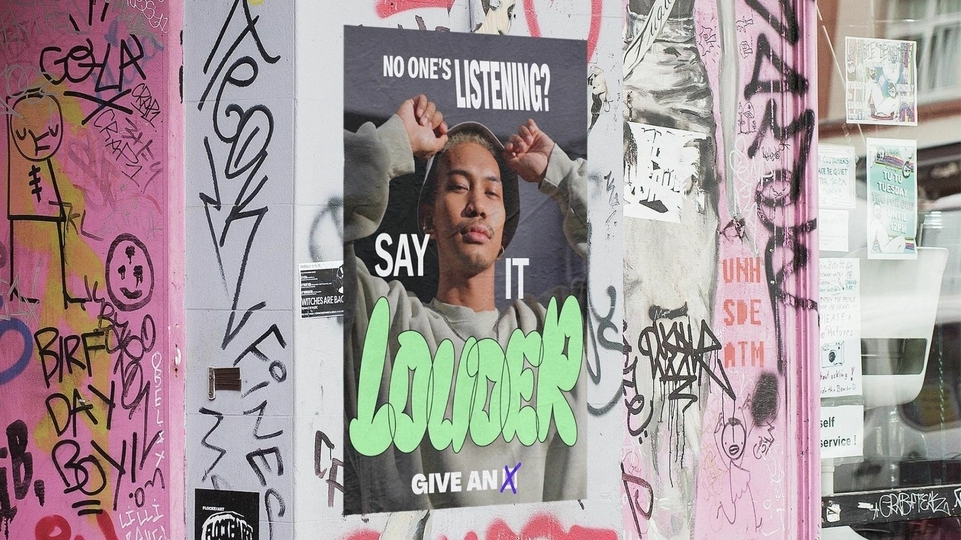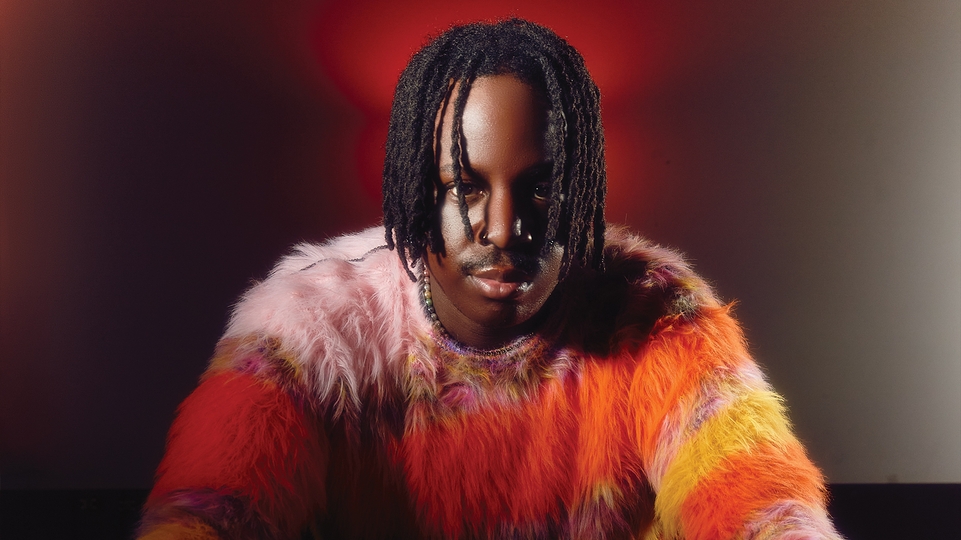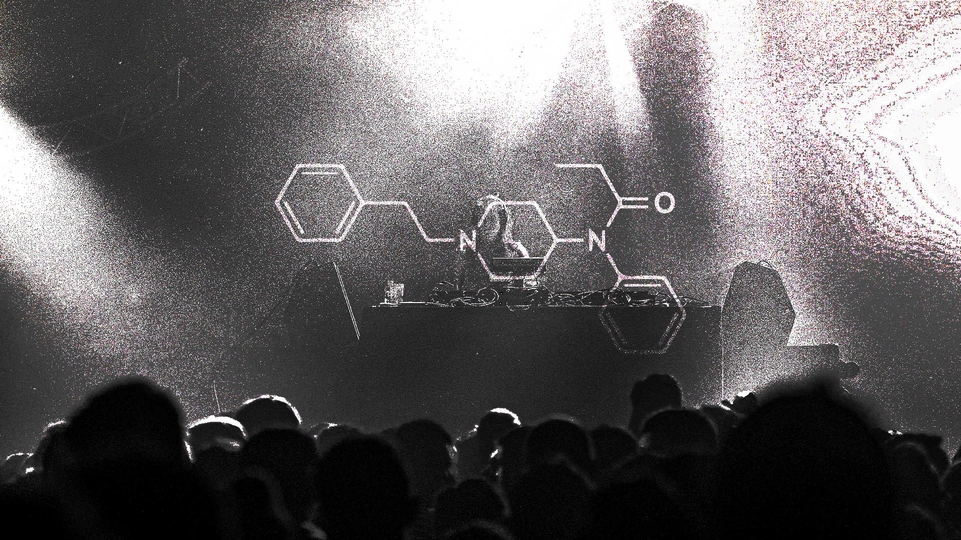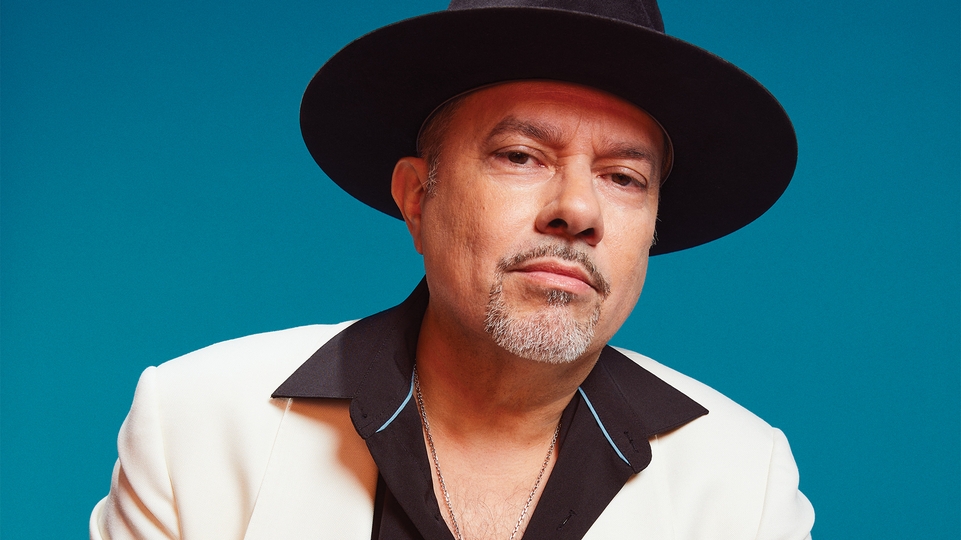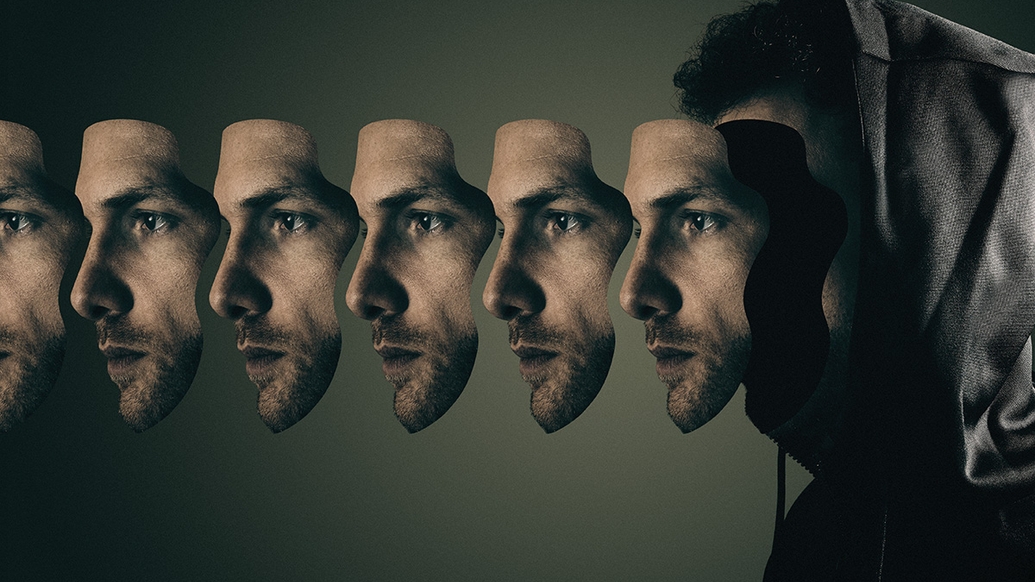
Mumdance: Pieces of the puzzle
With his DJ sets and productions that meld grime, techno, jungle and avant-garde experimentalism, Mumdance is one of the most original artists in UK dance music. But his journey to the cutting edge has been littered with setbacks and false starts. We meet him in London to find out how he’s navigated the music industry and learned that being himself is the best strategy...
Pics: CHELONE WOLF
Few DJs represent the spirit of UK dance music like Jack Adams does. A lifelong student of hardcore, drum & bass and grime, he is utterly devoted to the culture, obsessive in his eagerness for discovery, and passionate in his want to share his knowledge with others.
Over the past decade, he’s had it all, lost it, and rebuilt himself in such a way that he’s now more confident, more creatively minded, and more comfortable with his art than ever.
The ‘weightless’ production style he’s helped to develop under his Mumdance moniker has redefined what grime and bass music can be, and has the potential to touch every corner of electronic music — particularly as Jack reaches new audiences through his more recently gained passion for techno. Through his Different Circles label and club-nights, Jack is spreading an ethos that eschews genre boundaries. Nowhere is this attitude more prevalent than in his DJ sets, where drum & bass, grime, techno and ambient all bleed into each other, tempos are left to run wild and mood becomes the most important factor.
It’s taken a long time for Jack to reach this point, but the culmination comes in the form of his superb new ‘Shared Meanings’ compilation project — and as DJ Mag finds out, it could mean the start of a whole new area for Mumdance. “I really enjoy DJing now, and it hasn’t always been like that. DJing used to be very stressful for me,” Jack tells DJ Mag, as he sips a lager in the corner of a quiet Brixton bar. “One: I didn’t think I was good enough at it. And two: I used to just get stressed out having everyone look at me.” He even admits to preferring larger venues, as there’s less chance punters will be stood staring him in the face. “I used to just have a hat on, be head down... I used to be looking up and stuff, but I wouldn’t be making eye- contact with anyone,” he says. “But now I feel a lot more comfortable, and it’s taken a long time, both musically and as a performer behind the decks. The hardest thing in life is realising that you’ve just got to be yourself, ’cause if you’re just being yourself, no one can touch you.
This comfort comes, in part, from a shift in the attitude of audiences, one that’s seen a multitude of genre-hopping DJs rise to prominence. He recalls how, in years gone by, people would be confused, even offended, at his style. Even now it can be a problem, says Jack, chuckling as he recounts a recent appearance at Portugal’s Festival Forte where, although the vast majority of the crowd were happy, “I had like three older geezers running up to me going, ‘What the fuck is this?’” In his mind, however, while he respects the role of specialists, Jack thinks mixing different genres shouldn’t be seen as a novelty, or something groundbreaking — “That should just be the normal way”.

RADIO MUMDANCE
It would be criminal to give all the credit for Jack’s newfound confidence to a change in the opinion of others. He earned it — by way of a very public, and near- Herculean task. In 2017, Jack launched a new project on Rinse FM, challenging himself to a run of 40 weekly shows. The series put a particular focus on back-to-backs, with Jack taking on a wide range of artists. Some seemed like natural fits — Logos, Pinch, Parris, E.M.M.A, even Ben UFO — but it was when the pairings were, on paper at least, more outlandish, that things got really interesting. We’re talking names such as Japanese experimentalist ENA, techno stalwarts Shed, Sunil Sharpe and Surgeon, electro don DJ Stingray and the inimitable Nina Kraviz.
“I tried to choose people who were respected as specialists, as masters in their field, to pit myself against,” says Jack. “It was like an assault course to me. But it worked.”
While Jack says the run definitely made him a better DJ, it wasn’t perfect mixing that boosted his self-esteem, but the realisation that it’s OK to get things wrong. “People like the imperfections on radio, they like hearing the mistakes, people talking, getting confused,” he says. “With radio, people like to know that they’re listening to someone... that’s why I didn’t do many guest mixes, and that’s why I prefer to do back-to-backs, ’cause you can get the other person in and it’s a different beast — you’re both there, and it’s exciting.”
The benefits of Radio Mumdance have been far reaching, opening Jack up to new audiences and new bookings. Two shows in particular, he says, have taken him “to the most places” — Stingray and Kraviz.
“I think the sort of interplay between both of us was... it just fell into place,” he says when quizzed on why this is. “I think mine and Stingray’s styles work really well together, and I think mine and Nina’s styles work really well together.”
Jack now plays back-to-back with Stingray on a semi- regular basis, a situation he’d love to see repeated with Kraviz. “I think she’s amazing,” he says, remembering how their show came together. “It was at Unsound festival; she finished at seven in the morning, and she got up to play a back-to-back with me, a relative unknown, at like 11. She must have had three hours sleep maximum, and she’s the biggest underground DJ in the world. I was really humbled by that.”
“The John Peel show is what I used to listen to when I was young, ’cause it just used to baffle me. Hearing fucking black metal, then a techno track, then a drum & bass track, then some Motown. It made no sense, but perfect sense”
In the end, Jack put a stop to the series, as it had begun to take over his life. While not planned, each show took a solid two days of prep, and having gone head-to-head with some of the world’s best DJs, figuring out how to top those names was proving difficult. Radio has always been a huge part of Jack’s life, though, and he’s certainly not disappeared from the airwaves, now hosting a monthly show on NTS instead. The back-to-backs are something he’d like to revisit, he says, but on a less regular (and less stressful) basis. The new show still allows Jack to flex his considerable knowledge and wide-ranging taste; when DJ Mag joins him at NTS the day after our initial interview, he plays everything from Jensen Interceptor’s hard-nosed electro, to rowdy hardcore from DJ Rob, murky grey area by Sam KDC, and driving metal by Brighton band Mount Wycheproof. To anyone unfamiliar with Mumdance, it might sound like an odd collection, but it’s less surprising when you find out who Jack’s own radio influence was.
“The John Peel show is what I used to listen to when I was young,” he says, “’cause it just used to baffle me. It used to confuse the shit out of me. Like hearing fucking black metal, then hearing a techno track, then hearing a drum & bass track, then hearing some Motown. It just made no sense, but perfect sense.”
Jack explains how Peel’s open-minded approach became central to his own outlook, reinforcing his curiosity about music. “Even though it confused me, that was the sort of core thing that I wanted to carry forward as an artist.”
This penchant for confusion can be traced to Jack’s modern DJing philosophy. “There’s this idea of suspense and release, like the build up and the breakdown. And then there’s dynamics, in terms of stuff which is intense, like an intense drum track into a weightless track,” he says. “I’ve been trying to bring another dimension to that, which is disorientation and orientation.” This concept applies best in his crossing over of grime and techno, a feature of his sets that, while controversial to some, has earned him a lot of props and helped find new fans for both sides. “Grime is disorientating, and then suddenly the four-four orientates you, that’s your grounding,” he says. “I’ll play a grime track, and I’ll have a four-four underneath it, and I’ll just be switching between the two. And you can do that to big rooms in techno, just switching the basslines out, and it works really well.”
GRIME KID
Although a free-roaming DJ and producer, it is with grime that Jack is most commonly associated. It was this disorientating aspect of the sound that first drew him to it while back in his hometown in the noughties.
“I was into hardcore, drum & bass, jungle, and then there was this pub in Brighton called Hector’s House — it’s not there anymore. There’s a DJ booth in there, and this DJ played Wiley ‘Eskimo’. I was just like, ‘What the fuck is this?’ Like, ‘What. Is. This?’” says Jack, his voice almost aggressively excited, like the screw-faced elation after a drop. “That was a pivotal moment for me.”
It was an experience he likens to the first time he saw a live DJ set, catching drum & bass pioneers Kemistry & Storm at a festival in Brighton when he was just 13 years old. He describes the moment the bass from the soundsystem hit him then as a “life-changing experience”. But what was it about ‘Eskimo’ that had Jack so hyped? “It’s how stripped back it was. It’s how awkward it was,” he says. “All the stuff you heard before, drum & bass, garage, it all had swing to it, swingy, skippy beats. And this just didn’t have anything. It was just awkward.”
Grime quickly became a new obsession, with Jack going to see crews like Roll Deep and Ruff Sqwad perform in Brighton, before following the sound to its roots in London around 2008. There, he got involved with MC and producer Jammer, of Boy Better Know fame. “I learnt how to make grime in Jammer’s basement, so I don’t think it can get more grime than that,” Jack says. “I had a very good grime education, directly from Jammer, and working with Trim and Badness and all the people like that. I feel very lucky that I was able to learn from the source. Jammer took me under his wing for a bit. I used to be Jammer’s DJ, when I was young, when I was first starting.”
Jack’s first brush with stardom came about thanks to a team-up with Jammer — although with an unlikely twist. The pair put together a bootleg of Diplo’s remix of Black Lips’ track ‘Veni Vidi Vici’, and the US megastar was so impressed, he got Jack involved in some more remix projects, eventually dropping a full Mumdance EP on his Mad Decent label. Within a couple of months, Jack was travelling around to work with musicians in far-flung corners of the world. But he wasn’t happy.
“I didn’t feel like I was ready for what was happening, I didn’t think I was good enough at production,” he says. “I guess I had, like, imposter syndrome.” Before long, the public
lost interest too. “I’d like to say that I made a conscious decision to go away, but what actually happened was, tastes changed... the next wave of labels and stuff came through, and basically
I just wasn’t cool. Music’s currency, and I remember sometimes some older DJs asking me for a tune, and when I was younger, I was like, ‘Do I want them playing my tune?’ And then once I asked someone for a tune, and they wouldn’t give it to me, and then I realised I was the uncool DJ. That really struck me.”
Jack stopped getting booked and his money quickly dried up, forcing him to move back into his mum’s house (or more accurately, the shed in her garden) and go back to working for his dad on building sites. It turned out to be exactly the wake-up call he needed. “It was dark,” says Jack. “But that time was when I stopped caring about what I should do. I’ve always done what I wanted to do, but... what I was doing with Mad Decent was more about looking out to the rest of the world for influence, looking to Brazil, to Mexico, but when I really became the artist that I am now was when I turned inwards."
Jack looked to his roots for influence. Over the next three years in “that fucking shed”, he turned his career around once again. His next defining moment came in 2013 when, after trying and failing to get his work signed with a multitude of labels, he self-released his ‘Twists & Turns’ mixtape. Suddenly, everybody wanted a piece. “I literally got two emails next to each other from the same person, one going ‘No sorry, we don’t like any of your music’, [the other] saying, ‘Oh I heard this’ — which is exactly the fucking music that I sent them — asking me to sign this thing,” Jack recalls. “I vividly remember looking at these two emails side by side and thinking, ‘Oh fuck you man’. And that’s when I was very, very conscious to just build my own thing.”
SWITCH UP
‘Twists & Turns’ introduced a new side to the Mumdance sound: less focused on danceable rhythms, instead inspired by the clunky noise of musique concrète, the melancholia of shoegaze, and aggressive hardcore mood-swings. The release also marked the start of Jack’s relationship with James Parker, better known as Logos. After hearing Keysound boss Blackdown play a Logos tune on Rinse FM, Jack got in touch and invited him round for a studio session. “Two days later he came down to my house, and that first day we wrote ‘In Reverse’ and ‘Move Your Body’,” he says. The tracks appeared on ‘Twists & Turns’, and Blackdown also signed them to Keysound as part of the appropriately titled ‘Genesis’ EP. Jack feels like they still haven’t gone out of fashion — and he’s not wrong, with a slamming remix of ‘Move Your Body’ by techno sadists Perc & Truss claiming the Best Remix gong at DJ Mag’s Best Of British Awards just last year, four years after the original was released.
“They’re basically just interpretations of golden era Metalheadz,” Jack says of the tracks, adding that the same is true of ‘Turbo Mitzi’, his first collaboration with Bristol’s Pinch, released in 2014. “This is the thing, though, that annoys me... people at the moment are making hardcore tunes like the old tunes,” he says. “I’m like, ‘I’ll just play the old tunes, ’cause the old tunes are better’. You’re never gonna better the old tunes. But what me and Logos did, and what me and Pinch did, is try to take the mood of a Metalheadz track, and just do it differently. It’s just trying to take the feeling, that dread, that dystopian sort of feeling, but put our own twist on it."
In the years since, Logos and Pinch have become two of Jack’s closest allies, producing a slew of releases together, primarily for Pinch’s ever-fresh Tectonic imprint. These are far from Jack’s only collaborators too; 2015 saw a standout return to grime with the massive ‘1 Sec’ featuring Novelist, then one of the most promising young talents of the genre’s second wave. Released via XL, Jack explains that it’s basically a musique concrète piece — “it’s just sounds of the city”.
This year saw Jack engage in two of his most ambitious projects yet. Firstly, working with New Orleans singer DAWN and recording a host of live instruments to create full-on power ballad ‘Guardian Angel’ — “just ’cause I wanted to see if I could do it”. Then, being a longtime fan of metal (discovering it through a combination of John Peel and old BMX videos, “my first love when I was young”), he joined forces with James Kelly, a former member of the Irish metal band Altar Of Plagues, and now more commonly known as electronic producer WIFE. The pair became Bliss Signal, combining Jack’s modular set-up and TR-909 drum machine with Kelly’s guitar to create an obsidian world of eerie ambient textures and roaring distortion. Think darkside-meets-techno-meets-black metal.
“I’ve always liked collaboration, I love the collision of ideas,” says Jack. “I like the fact that you do something which is the sum of two people’s parts, it’s not one person, it’s not the other.” He also admits to getting bored when left alone in the studio for too long, and being liable to “piss around with something for fucking ages and not get anything done” — an issue most can relate to.
With collaboration, that problem is relieved, and with each pairing comes a new, distinctive result. “Me and Logos have got our own style now, and me and Pinch have got our own style, and it’s nice to be able to jump into these two zones,” Jack says, revealing that with Pinch, “we’ll always be sort of bickering, but it’s healthy”, while working with Logos is the easiest production experience he’s had.
It’s with Logos that Jack released the stunning 2015 album ‘Proto’. An eight-track collection, it perfectly captured the unpredictable yet club-ready sound the duo have become known for, pitting abrasive, haphazard beats against futuristic atmospherics. The latter element, Jack reveals, mostly derives from a single field recording he took in an airport in Rome. “It’s on pretty much every track on ‘Proto’, it’s in loads of tracks on ‘Bliss Signal’, it’s on ‘In Reverse’, pretty much every track I’ve done with Logos, ’cause it kind of puts everything in the same place,” he says. “It’s funny, but no one’s ever clocked it!”
WEIGHTLESS
Through their work together, Mumdance and Logos developed one of their most defining concepts: weightless. An “extension of minimalism”, weightless isn’t a genre in itself, but an approach to production. Despite often being mistakenly called “weightless grime”, much to Jack’s annoyance, the idea was crafted so as to be applicable to any sound.
“It’s a constantly expanding set of ideas,” he says. “More than a set of rules, it’s like a foundation to work outwards from. We didn’t want it to be anchored to a genre or to a time or a place.”
Jack explains how the concept really originated with Logos’ 2013 Keysound album ‘Cold Mission’, which he calls an “underrated classic” and puts on a par with The Prodigy’s ‘Jilted Generation’, Burial’s ‘Untrue’ and Goldie’s ‘Timeless’. “That album is as important to the timeline of UK electronic music,” he says. “That album’s been like the core influence, definitely to what I do, and to what a lot of people do, and it was the start of the whole weightless thing.”
The weightless sound found a home in Boxed, an event series centring around instrumental grime, run by Mr Mitch, Slackk, Oil Gang and Logos. In the past, it’s been likened to what FWD>> and DMZ were to dubstep. “It was just a very fertile breeding ground for ideas, that was a very special moment,” Jack says of the party. “When Boxed started, there’d only be like 30 people in the rave, but they’d all be people who were solidly into the music and solidly doing things. They’d be going in and soaking up ideas, and then sending tunes back, and then those tunes [would get] played.”

While Boxed is still running, its heyday has passed, which Jack believes is due to a lack of incubation, the result of our accelerated culture. Still, he considers himself lucky to have been a part of it. We wonder if, like other such movements — Autonomic drum & bass, for example — weightless was born as a reaction to the popular sounds of the time.
“I don’t think it was reactionary, I think it was more evolutionary,” says Jack. “I guess the only reaction with Boxed was, we just wanted to take it back to UK original instrumental grime, ’cause that’s what we loved best, but then that was going on a tangent to get weirder and weirder.”
In 2014, Jack and Logos created a new home for the weightless sound, launching their Different Circles label. It’s since released work from Rabit, Strict Face and Airhead and, through ‘Weightless’ compilations, built a much wider roster that includes New Zealand noise artist FIS and harsh techno head Shapednoise, the latter of whom Jack and Logos have collaborated with on the sci-fi inspired “improv noise jam” project, The Sprawl. This year alone, Different Circles has branched out to include a clunky but much more club-orientated two- tracker from Manchester’s Szare, a super stripped-back EP from Raime and a full album of oddities from Italian artist Chevel. Next comes an EP from Horo-affiliated ENA, and early next year, they plan to drop ‘Weightless Volume 3’. “It’s an evolving idea,” Jack says. “It did start within the idea of the devil mix [beatless versions of grime tracks] and stuff like that, but it’s like an axis where ambient, noise, grime, hardcore, all these things sort of interlink, but it’s not any of them. It’s really exciting in the way it’s expanding. We’ve got ‘Weightless Volume 3’ coming out early next year, and we’ve got some pretty big names down for it. They’re all very experimental, I think you’ll be quite surprised.”
THE CURATOR
The Different Circles label and the associated parties, which have run in London, Manchester, Bristol, Glasgow and even been taken over to Berlin and Mexico City, allow Jack to exercise a third aspect of Mumdance: the curator. The latest manifestation of this comes in the
form of ‘Shared Meanings’, a whopping 32-track mixtape, dropping as a free mix, digital compilation, limited edition cassette and a five-track vinyl sampler (all bases covered, then).
Despite mixes being so readily available online, Jack has released a mix comp every year for the past half-decade, and is a firm believer in the format.
“I think they chart the progression of your taste. It’s a nice way of sticking your flag in the ground, and also just showing your progression as an artist,” he says.
And ‘Shared Meanings’ does just that. The collection encapsulates Jack’s confidence in his ability to DJ just about anything he likes, his excitement and knowledge for the current scene, and even pays tribute to his musical heroes.
Jack spent a month collecting unreleased material from “every single fucking person I knew”, and even some he didn’t — Hector Oaks’ ‘Dare To Care’ arose from a chance first meeting at a club in Munich, for example, while ‘Bliss Overdose’ from Tales Of The Underground came from Jack asking for tunes on Twitter, and apparently marks the artist’s first official release. All in all, Jack gathered together around 600 tracks covering techno, drum & bass, weightless, grey area, ambient and hardcore. After a selection process which he describes as “heartbreaking”, the result is a heap of the most cutting-edge artists in dance music — Peder Mannerfelt, Nkisi, ASC, Space Afrika, Imogen, Abyss X and Galaxian, to name just a few.
“It’s just like, what I’m interested in now,” says Jack, matter-of-factly. “That’s why it’s called ‘Shared Meanings’, ’cause I think, again, it’s coming to that sort of mood and connection. The basis of any culture is shared meanings: when I say table, you know what a table is, but the table in your head is different to the table in my head. “But also there’s this connection... like when you’re on the dancefloor and you look at someone, and you both know, you know? You hear a big tune and you both fucking know. And that person could be from a different country, could be 10 years older or 10 years younger than you, and you look at them and still have the same shared experience.”
The mix itself purposefully jumps around in tempo and style, avoiding the typical linear pattern of becoming faster and more intense as it progresses, and unlike any of Jack’s previous mixtapes, it contains just one of his own productions. The track, a collaboration with Logos titled ‘Teachers’, was originally created for ‘Proto’ but didn’t make the final cut. Based on the Daft Punk track of the same name, the song takes the format of the original, naming key influential figures from the history of dance music, but is adjusted to pay tribute to those who inspired Mumdance and Logos — in particular, the legends of UK dance music. Everyone from Doc Scott to 4hero, DJ Storm to DJ Vibes, Slipmatt to DJ Rap, Photek to Digital, Billy Bunter to Regis, Carl Cox to Ruff Sqwad, Slimzee to Mary Anne Hobbs and even radio stations, events and clubs such as The End, Corsica Studios and The White Hotel are name-dropped (by Jack himself) over a slick acid line. “This one goes out to the teachers, respect to the underground,” goes the hook — it’s the ultimate centrepiece for the compilation, a fitting celebration of the past in a collection that is so clearly future-focused. And it couldn’t feel more Mumdance.
Having fully embraced who he his, and now finally getting the wider respect he deserves, Jack Adams seems unstoppable. A wholly original producer and a DJ who’ll move your feet, but perhaps not in the way you expect, he’s an ideal tastemaker for the musically open-minded wave sweeping dance music. More confident than ever, he’s even ready to take on the only obvious challenge that remains to him — the dreaded debut solo album, which he promises to deliver next year. Though he’d probably never admit it, the student has well and truly become the master.
